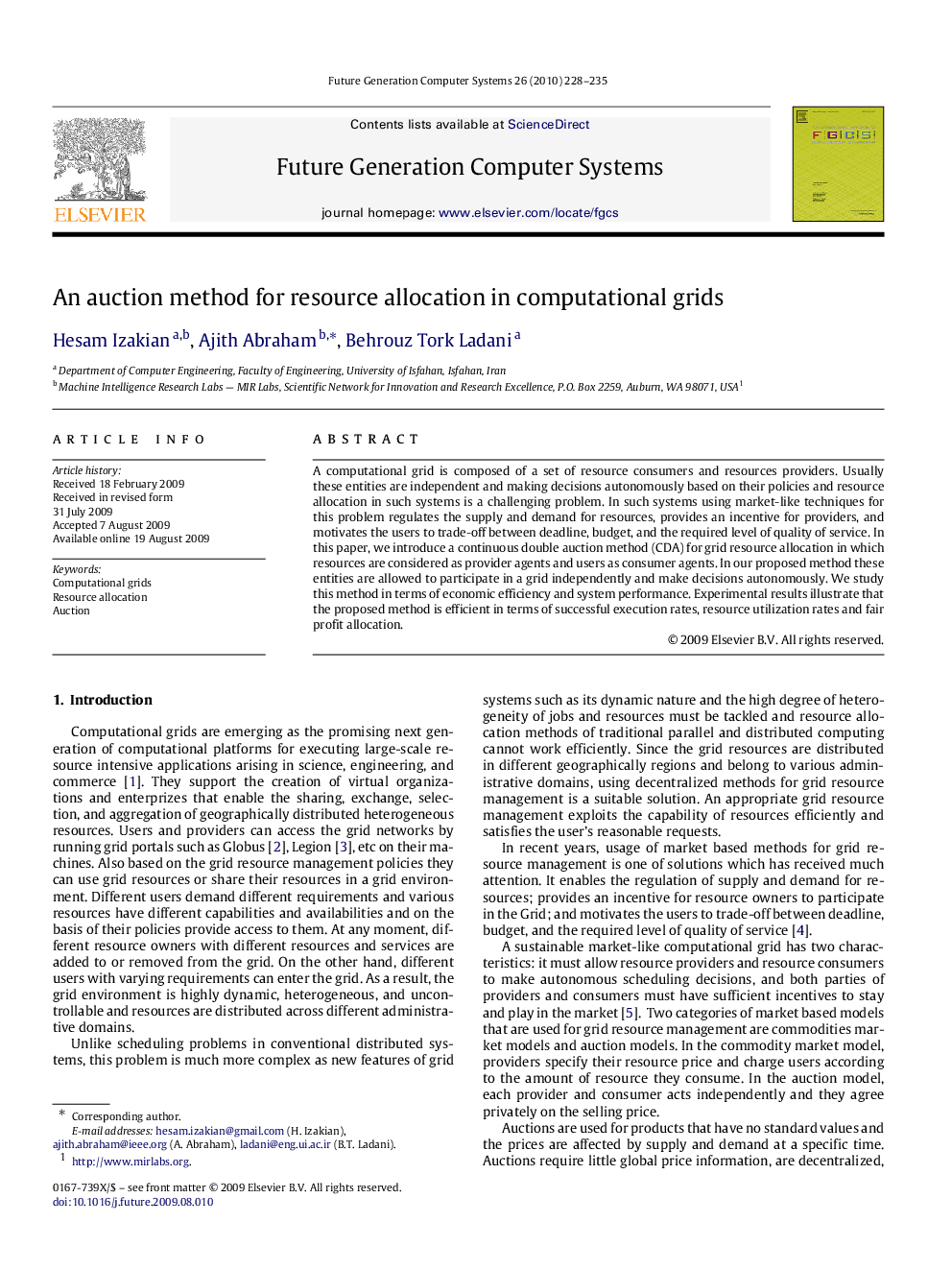| Article ID | Journal | Published Year | Pages | File Type |
|---|---|---|---|---|
| 426247 | Future Generation Computer Systems | 2010 | 8 Pages |
A computational grid is composed of a set of resource consumers and resources providers. Usually these entities are independent and making decisions autonomously based on their policies and resource allocation in such systems is a challenging problem. In such systems using market-like techniques for this problem regulates the supply and demand for resources, provides an incentive for providers, and motivates the users to trade-off between deadline, budget, and the required level of quality of service. In this paper, we introduce a continuous double auction method (CDA) for grid resource allocation in which resources are considered as provider agents and users as consumer agents. In our proposed method these entities are allowed to participate in a grid independently and make decisions autonomously. We study this method in terms of economic efficiency and system performance. Experimental results illustrate that the proposed method is efficient in terms of successful execution rates, resource utilization rates and fair profit allocation.
